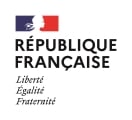All the State’s flows of funds (expenditure and revenue), along with the Treasury correspondents’ flows, are centralised in real time through a single account held with the Banque de France and managed by AFT. The single account records all financial transactions executed by more than 4,000 public accountants using nearly 3,000 transaction accounts.
This structure enables the Banque de France to provide AFT with a centralised, real-time view of the Treasury’s single account so that AFT can make medium- and long- term forecasts of expenditure and financing in order to optimise the State’s cash management.
AFT also relies on Banque de France staff for the practical organisation of Treasury security auctions and oversight of the settlement process for the securities sold.
Acting as an intermediary between AFT and the primary dealers, the Banque de France receives the primary dealers’ bids and then compiles an anonymous summary of the orders and presents it to AFT, which uses it to allocate each security.
To carry out this task, the Banque de France has developed a dedicated and highly secure system called MAITRE (Mécanisme d’Adjudications Informatisé du Trésor), which replaced the former TELSAT system (système de TELétransmission des Soumissions aux Adjudications du Trésor) in 2022. This new system is used by the primary dealers to submit their bids and by AFT to allocate Treasury securities.
The Banque de France provides this service under the terms of separate agreements with AFT and with each primary dealer.

CITÉCO, Europe's first economic museum
Citéco is a new educational and cultural venue dedicated to the economy. Located in Paris's 17th arrondissement, it was launched in June 2019 at the initiative of the Banque de France, which is responsible for determining France's economic and financial education strategy. Even though the economy is very much a part of our everyday lives, Citéco is Europe's first museum dedicated to the topic.

To help visitors gain a better understanding of how the economy functions, the museum's permanent collections focus on six key concepts: trade, stakeholders, markets, crises, regulations and currency.
The museum is located in the Hôtel Gaillard, a neo-classical townhouse that was built in 1878 for banker Emile Gaillard. The building was subsequently converted into a branch of the Banque de France and became a listed monument. This exceptional location places Citéco at the crossroads of economics and French history. In addition to the permanent collections, the museum will also feature a year-round calendar of temporary exhibitions, master classes, evening hours, lectures and events that make it a fully-functioning museum with ever-changing offerings.

